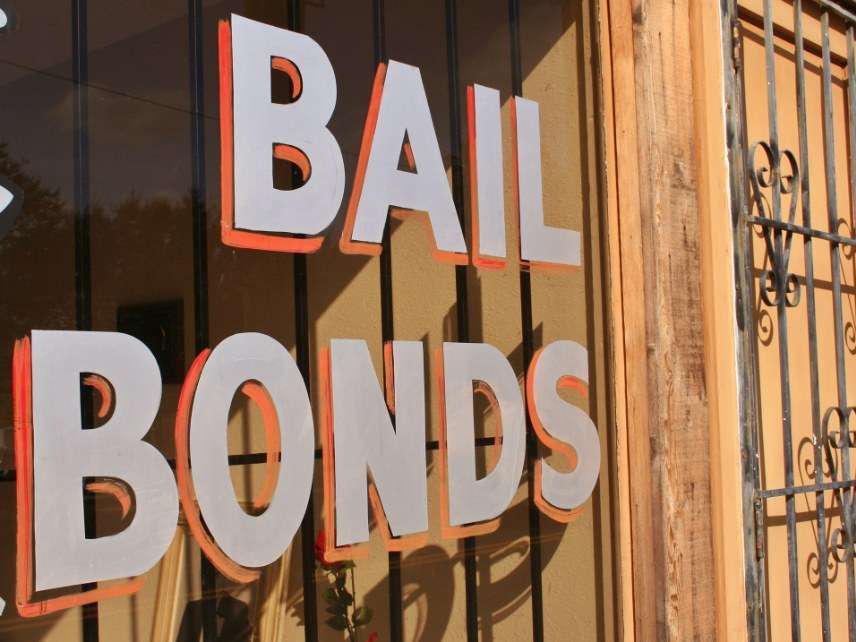Google to Purge Ads for Bail Bond Services
Company throws weight behind reformers who want to end the practice of jailing people who cannot afford to pay.

This post has been corrected to clarify between Koch Industries and the Charles Koch Institute.
Google has thrown its support behind the growing movement to eliminate cash bail by purging bail bond advertisements from its platform.
Beginning in July, Google will no longer accept advertisements from private bail bond services. David Graff, Google's director of global product policy, explained the decision Monday:
We made this decision based on our commitment to protect our users from deceptive or harmful products, but the issue of bail bond reform has drawn support from a wide range of groups and organizations who have shared their work and perspectives with us, including the Essie Justice Group, Koch Industries, Color of Change and many civil and human rights organizations who have worked on the reform of our criminal justice system for many years.
Vanita Gupta, president and CEO of the Leadership Conference on Civil and Human Rights, put out a statement Monday afternoon supporting Google's decision:
No one should be incarcerated—before they've even been tried or convicted of a crime—simply because they can't afford not to be. With this ban, Google is doing its part to protect people from unscrupulous advertisers who are taking advantage of the fact that most people will do whatever they can to avoid having to spend time, or having their family member spend time, in jail.
This morning, Google hosted these organizations at a bail reform panel in D.C. to discuss the push for court systems across the country to move away from using cash bail systems. A representative from Koch Industries was on the panel, and separately the Charles Koch Institute provided a brief statement to Reason show support for bail reform:
The Charles Koch Institute (CKI) is interested in driving solutions to the many barriers to opportunity caused by monetary bail. We believe that decisions to detain an individual accused of a crime should be based on public safety and flight risk. These decisions should be consistent with the Bill of Rights and the Eight Amendment, and not be based solely on an individual's ability to pay. CKI is excited to lend our voice to this issue alongside leaders like the Pretrial Justice Institute.
New Jersey courts have largely eliminated cash bail. Alaska this year changed its system to rely less on cash bail and to use pretrial risk assessments and monitoring tools to try to keep more people out of jail if they have not been convicted. Other states, such as California, are considering changes—and if they don't, civil rights groups plan to force the matter with lawsuits.
But refusing to run ads for bail bond companies isn't changing the law. It limits publicity for a service that many people need to get out of jail right now. The American Bail Coalition, which represents the industry, is not happy with Google's decision and disagrees with the Koch Institute's interpretation of the Bill of Rights. In a prepared statement, American Bail Coalition President Jeff Clayton responded:
It is shameful that Google would deny people access to bail services, which are heavily regulated by state insurance commissioners around the country. For years, Google has taken money from bail companies, like all other legal businesses, to let the marketplace help consumers of services find and research the providers of such services that they need. However, it would appear that Google and Koch Industries have decided to pander to special interests in an attempt to re-engineer society according to their own dictates. Unfortunately, their alarming move to re-write state and federal statutes on their own is inconsistent with the rule of law and the U.S. Bill of Rights.
People who are actually in need of bail bondsmen are still going to be able to track down services. But it's not like Google is purging those companies from its search results. Well, at least not yet. It's worth considering that possibility given that the company says it believes these bail services are a "deceptive and harmful product."


Show Comments (54)